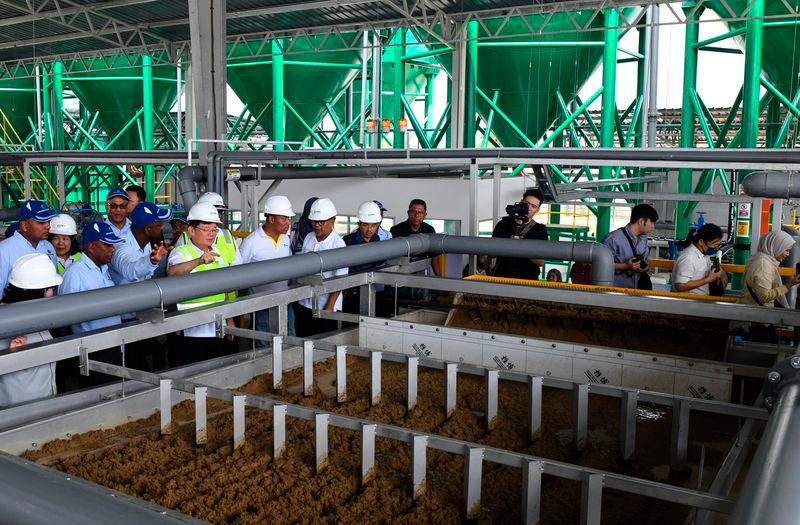BUTTERWORTH: The Penang Water Supply Corporation (PBAPP) is set to cut costs by RM90 million per year with the commencement of operations of the Sungai Dua Dewatering Plant (SDDP), which provides a new solution in managing water treatment residue.
Chief Minister Chow Kon Yeow said SDDP, an outsourced facility costing RM20 million, is located within the Sungai Dua Water Treatment Plant (WTP), Penang’s most critical water treatment facility. SDDP was specifically built to handle residue generated from the treatment process at Sungai Dua WTP.
He said SDDP, operated by scheduled waste management and wastewater treatment company Alam Aliran Kualiti Sdn Bhd (AAK) under PBAPP’s supervision, is not only to reduce costs but also to ensure compliance with the Department of Environment’s (DOE) regulations on disposal of WTP residue.
“WTP residue, or industrial effluent, is a byproduct of the water treatment process. It consists of soil, sludge, sand, clay, organic matter, and a small amount of aluminium residue mixed with soil waste. The remaining aluminium is filtered out when we treat river or dam water to produce treated drinking water.
“This residue is placed in a tank, mixed with polymer, and undergoes several processes. In the final stage, the treated water is returned to the reservoir, while the separated sludge is sent to AAK’s factory in Bukit Minyak for brick production,” he told reporters after officiating the opening of SDDP at the Sungai Dua WTP today.
PBAPP chief executive officer Datuk K. Pathmanathan also attended the event.
Elaborating, Chow said the SDDP at Sungai Dua WTP is the first of its kind in the country, adding that it is a smart, eco-friendly solution to the long-standing WTP residue management, which has persisted for 16 years.
Previously, such waste had to be disposed of at designated landfill sites to prevent environmental harm.
He said PBAPP incurred over RM90 million annually to dispose of 460 metric tonnes of untreated residue from Sungai Dua WTP, with disposal costs estimated at RM550 per metric tonne.
Meanwhile, Pathmanathan said with the capacity to handle up to 500 metric tonnes of WTP residue daily, the facility aims to improve the efficiency of water treatment operations at Sungai Dua WTP, the largest treatment plant in Penang.
The Sungai Dua WTP produces 1,021 million litres of treated water daily, supplying water to over 465,000 consumers in Penang.
“However, the treatment process generates 450 metric tonnes of residue daily which will now be processed at SDDP. With significantly lower disposal costs, SDDP is expected to reduce waste management expenses by 74 per cent, making it more cost-effective and environmentally friendly,” he said.
Pathmanathan added that SDDP’s ability to handle residue in a larger capacity would allow the Sungai Dua WTP to boost its treated water output to 1,342 million litres per day in the future.









